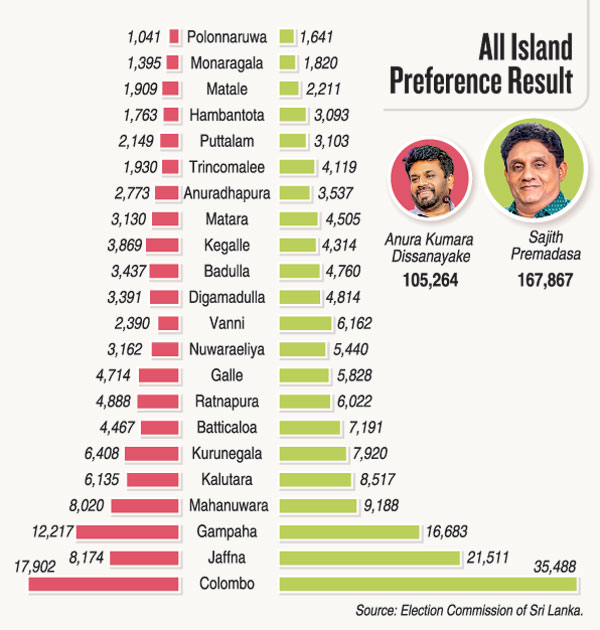News
Voters lack knowledge about preferential voting, claim foreign observers
View(s):By Dilushi Wijesinghe
For the first time in the history of Sri Lanka’s presidential elections, the Election Commission (EC) had to count preferential votes, as none of the leading candidates managed to secure the crucial 50 percent threshold.
Election Commissioner General Saman Sri Ratnayake said that only 273,000 preferential votes had been used for the two main candidates.
Preferential votes had been marked for other candidates as well, but in general, the marking of preferential votes was less than in previous elections. International election monitoring groups, including the Asian Network for Free Elections (ANFREL) and Commonwealth and European Union (EU) observers, underscored the pressing need for voter education regarding preferential voting in their observation statements.
“While voters are generally familiar with the voting process, their understanding of electoral regulations, including preferential voting, is limited,” ANFREL noted.

Commonwealth observers emphasised that the counting process indicated that many voters did not fully grasp the preferential voting system. Most ballots reflected either a single preference or a mix of symbols. “More needs to be done to build knowledge and understanding of the preferential voting system throughout the electoral cycle,” they said.
EU observers highlighted that voter education concerning the potential counting of preferential votes was insufficient. “There was generally little awareness of this hitherto dormant mechanism. There was little public discussion related to this voting option and its potential significance for the election outcome. All candidates urged voters to mark the ballot with only one preference; the ECSL, CSOs, and media limited themselves to explaining the correct ballot marking if voters chose to rank candidates.”
The Election Commissioner General pointed out that informing the public about the use of preferential votes was primarily the responsibility of political parties rather than the Election Commission. He emphasised the advantage of utilising the preferential vote. ” It eliminates the need for a second election, provided that a candidate does not achieve the required winning percentage of 50,” he said.
In comparison with the 2019 presidential election, there was an increase in the number of invalid votes. A contributing factor for the percentage of rejected votes rising from 0.85 (135,452 votes) in 2019 to 2.2 (300,300) in 2024 was the lack of voter education in terms of preferential voting,” the observers noted.
The best way to say that you found the home of your dreams is by finding it on Hitad.lk. We have listings for apartments for sale or rent in Sri Lanka, no matter what locale you're looking for! Whether you live in Colombo, Galle, Kandy, Matara, Jaffna and more - we've got them all!

